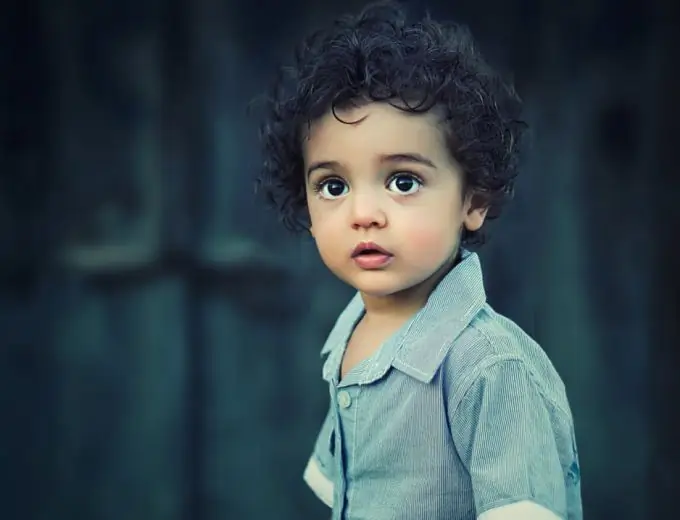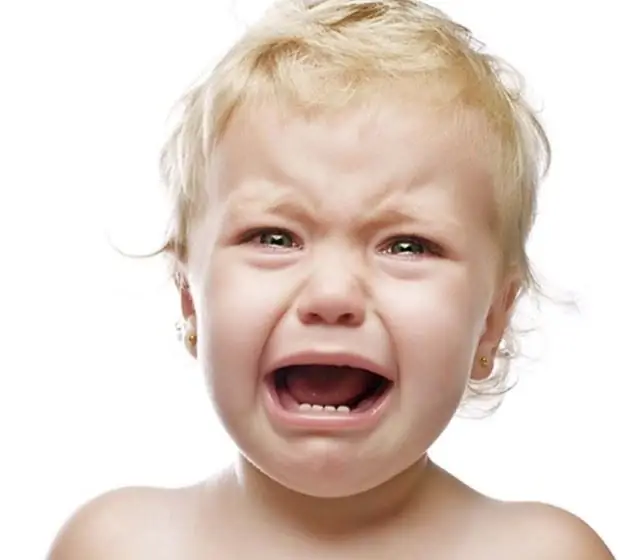- Author Horace Young young@householdfranchise.com.
- Public 2024-01-11 03:30.
- Last modified 2025-01-23 11:41.
Deciphering symptoms is an important part of keeping your child safe. If something is wrong, never hesitate to see a doctor. It is better to examine the child once again than to treat neglected diseases later.

8 symptoms that let you know that something is wrong with your child
Inactivity
If the child cannot wake up for a long time, or he is unusually quiet or inactive, not interested in his favorite toy, then by all means call the doctor. Changes in activity, especially after a fall or blow to the head, indicate immediate medical attention.

Breathing problems
If your child is short of breath, breathing heavily, wheezing, call the doctor. An excessive cough may indicate asthma, a serious medical condition, or something in the esophagus or trachea.
Examine the skin of the face, hands, palms. Make sure your skin tone is not gray or pale. Examine the nostrils to see if there is breathing. Check the ribcage to see how it moves as the baby breathes.
Dehydration
Dehydration is caused by inadequate fluid intake. This is serious! On the other hand, dehydration can be a consequence of vomiting or diarrhea.
The child may be lethargic or irritable, have a headache, be unable to urinate, or have very dark urine, and the skin and lips may be dry. You need to give the child water. But you should still see a doctor.
Headaches, dizziness, or fainting
Headaches, dizziness, or fainting should be considered in context. If the child falls or hits on the head and develops one of these symptoms, talk to your doctor. Head butting followed by vomiting, changes in vision or mood, confusion or sensitivity to light or noise are reasons to see a doctor right away. These are symptoms of a concussion.
Inconsolable cry
If the child is inconsolable, cries a lot, does not calm down in any way, call your doctor. There can be many reasons. Check your arms, legs, neck while waiting for the doctor. Are there any foreign objects that cause pain.

Frequent urination along with weight loss, excessive thirst
Have you noticed that your child often goes to the toilet? What is his behavior in general? Does he drink a lot of water? Active or sluggish? These could be signs of type 1 diabetes. See your doctor as soon as possible.
It could also be a sign of an eating disorder. This is common in young children. However, since eating disorders have long-term health consequences, it is worth consulting your doctor.
Chronic diarrhea and vomiting
In fact, the body induces diarrhea and vomiting to flush out “bad” food or other toxins. Once or twice, that's okay. Chronic diarrhea and vomiting are symptoms of a serious infection and can lead to dehydration. This is especially dangerous for young children and babies. Call your doctor immediately!
Conclusion
There are parents who do not pay attention to some deviations in the child's behavior. There is another category, which, with any change in behavior, panics and takes the child to all doctors. By paying attention to the prompts, you can better understand how your child is feeling and whether to go to the doctor or call an ambulance.






